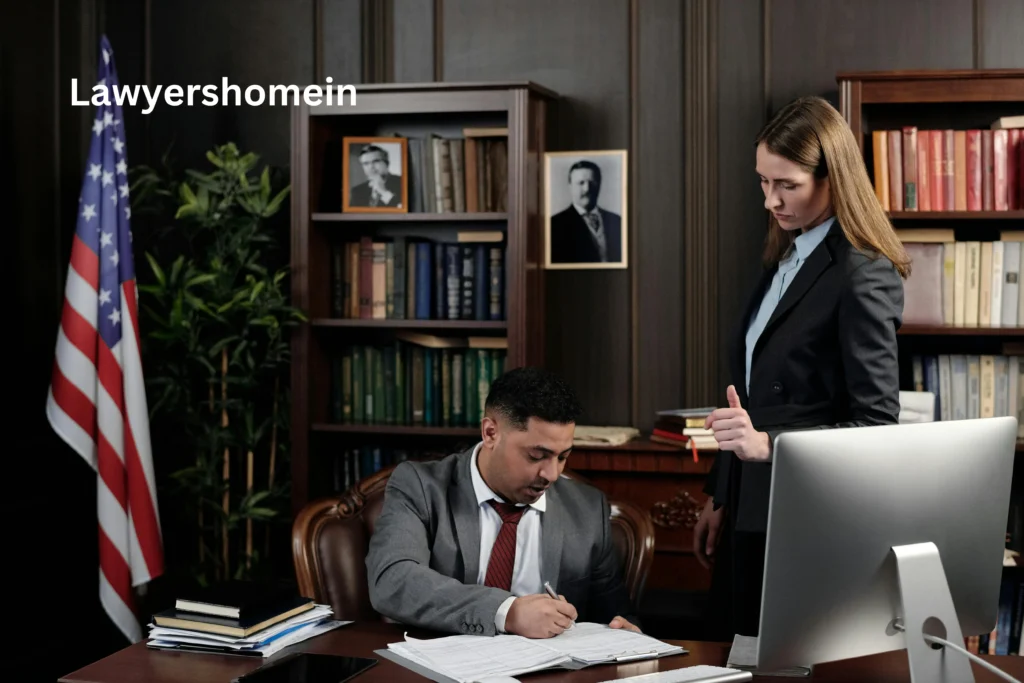Administrative lawyers specialize in navigating government regulations and agency decisions, representing clients in licensing, compliance, and appeals. They play a vital role in ensuring legal compliance, advocating in administrative hearings, and negotiating with government agencies. Discover how administrative lawyers protect client interests and maintain regulatory integrity.
Introduction to Administrative Law
It regulates actions of various governmental bodies. These laws concern rule making, enforcement and judicial decisions and apply to persons and companies. Administrative lawyers are trained in this special area to guarantee appropriate compliance and also litigate in the case of a dispute. They are able to find their way within legal frameworks that are often bureaucratic and are therefore sources of information that are useful in helping the organization to avoid the legal traps that are inherent in such environments. Administrative law has a great importance in the implementation of the high degrees of legal regulation in some fields. They assist the government in the implementation of policies alongside litigating on behalf of clients to ensure they uphold the law.
Key Responsibilities of an Administrative Lawyer
Administrative lawyers play numerous roles, and they may act for or against their clients in agency proceedings such as hearings and appeal. As for the second potential business network benefit, they assist with the better comprehension and application of the regulations. In the process of drafting- reviewing of documents under/pursuant to regulations and usage, its compliance is checked in accordance to legal bounded requirements. They act as attorneys and engage in settlement and settlement with government departments. It entails preparing applications for licenses and permissions as part of their usual tasks. Administrative lawyers work in a way that involves giving legal advice to a client on an ongoing basis so that they can continue to be in compliance with new laws.
Regulatory Compliance
Conformity to the rules and regulation as a principle of administrative law is majorly essential. Administrative lawyers offer legal advice to clients with regards to existing laws and requirements in the business world. They carry out compliance audits, or the assessment of areas of possible legal compliance concern. From here, they consult clients on proper measures on how to implement sound compliance measures. They also help their clients to ensure their operations are In line with the set industry standards, the risks are thus minimized. Consequences for non-compliance include severe penalties; therefore, their role is essential. Administrative lawyers ensure that clients are aware with the changes in the laws and/or regulations governing their everyday operations.
Licensing and Permitting
There is no doubt that the necessity to obtain necessary licenses and permits are of great essential for many organizations. Administrative lawyers help clients each time they apply for any administrative lawyers’ services. The managers guarantee that all papers and documents comply with the necessary requirements of the legislation. As agents of their respective clients in licensing boards they file systems for approvals. When it comes to renewals and dealing with incidences, they are the ones that take care of it. The skills that these four parties possess assist their clients to deal with the issues that cause delays and denials. Administrative lawyers make sure that all the legal requirements of licenses as well as permits are in place so that business transactions can continue smoothly.
Administrative Hearings and Appeals
Administrative hearings are formal legal proceedings where a decision is made by an administrative agency. Administrative lawyers participate in these hearings by presenting their arguments and physical or documentary evidence. These are normally done to ensure that they have all the documents required and other witness in case they are needed. If a client decides to challenge a decision of an agency, they address appeals. They aim at success in preparing appellate briefs and by arguing their points in person during an oral hearing. Stakeholders also need to realize that appeals and administrative hearings involve significant advocacy. With this, they strive to achieve the aim of proper treatment of their clients.

Drafting and Reviewing Regulations
Administrative lawyers may be involved in preparing special regulations and learning them as well. It ensures they collaborate with the agencies to come up with clear and enforceable policies. Scanning over the existing regulations and rules, they analyze contradictions and possible problems. They offer suggestions which can be incorporated in the improvement of the above regulations. This makes their input to be very crucial as they help in the formulation of regulations that are not only realistic but also legally acceptable. Participation in the formation of regulations entails special experience in administrative law. They are instrumental in influencing the policies that define various sectors.
Dispute Resolution
Conflicts with governmental authorities can occur in any given configuration. These disputes are settled by administrative lawyers through negotiation and where necessary the lawsuits. They intend to achieve such goals in order to avoid exposing themselves to risks that may jeopardize their clients’ rights. In some cases, they advocate for their clients, contesting agency actions in court when needs be. The parties work to avoid conflicts and seek to address them so that the conflicts do not disrupt business. Dispute resolution management is a long-term process which calls for both tactical planning and a profound knowledge of the existent administrative measures. Administrative lawyers like any other legal professionals have the hard work of trying to get the desired outcome in a particular case.
Interactions with Government Agencies
An administrative legal practitioner usually engages with government departments. Such services involve presenting the client’s cases through applications, petitions, and regulatory filings. Being in a diplomatic position with other officials of the agency they are tasked with negotiating for the best outcome. It supports the representation of clients in investigations and enforcement actions. It is imperative that there is positive relationship between the PR practitioners and the agencies. Their interaction calls for diplomacy and expertise in regulatory frameworks in their respective fields. Administrative lawyers represent their clients in cases while at the same time navigating through some legal requirements.
Legal Research and Analysis
Two important sub-disciplines quantify the core of every practice of administrative law and these are legal research and analysis. For that, administrative lawyers use statutory, regulatory, and case analysis to support their positions. They are in constant update with the various relevant legal changes that occur within the economy of the clients. As for precedents of the practice, they create strong legal arguments. Their analysis enables decision makers to execute strategic business decisions and decisions on legal issues. Accuracy and data gathering are important to advocate and work for the success of the cause. Administrative lawyers apply analysis as a key element in tackling legal issues within the field.
Compliance Audits
Prevision of regulatory problems is also possible through conduction of compliance audits. They conduct these audits for their clients with a view to ascertaining their compliance with the law on this matter. It involves inspection of work process, work procedure and rightfully documenting it. I think they state what may go wrong and some recommendation to be taken. The Audit for the clients is a way through which they can prevent themselves from incurring penalties and legal consequences. Evaluations and inspections on compliance should be done from time to time as it is part of legal analysis and improvement. Other professionals involved in the legal province of administration include the administrative lawyers; their role is to ensure that organizations adhere to the existing laws and regulations.
Professional Discipline
I also wish to point out that administrative lawyers can represent the professional, when the latter has been fired. It describes people who are facing the charges involving professionalism or the law. While accumulating the materials for a firm defense, they present proofs and statements of witnesses. When practicing before various professional boards, they advocate for fairness with a goal to secure their clients. It is invaluable for any specialist not to forget about some simple truth – punishments can be severe. They also aim at defending their client’s careers and images from being ruined. The committees ensure that statutes as well as disciplinary measures are implemented fairly and independently.
Policy Development
Another area through which administrative lawyers can engage themselves is in policy formulation. They assist in the development of policies that will cater for the matters of regulation. Employed by various businesses and agencies, they create policies meant to set standards. Regarding the contemporary policies, they contain suggestions with regard to the alterations to be implemented. This is always done with a view of ensuring that the existing policies are effective and legal. Policy formulation is process that is systematic and hierarchical that needs understanding of the policy and regulations. Administrative lawyers make suggestions in the formulation of policies that govern conduct within organizations.
Training and Education
Education and training are among the tasks of an administrative lawyer. They inform the clients as to which laws are applicable in a particular case and how the case can fit into those laws. They also conduct training sessions for their clients to brief them more on matters of law. The primary reason for training is to inform the clients of their responsibilities and risks. The subject of education enhances the theme of compliance in organizations. Hence, administrative lawyers have a huge task of increasing the level of regulatory compliance. They make sure that the clients are well placed to understand various legal frameworks.
Impact of Administrative Law on Business
Therefore, one can conclude that administrative law plays an important role in the activities of commercial companies and organizations. Legal and business sustainability can only be achieved when organizations adhere to the set laws and regulations. Administrative lawyers avail their services to firms in ensuring compliance to administrative laws regulating their operations. They help in the process of obtaining the relevant licenses and permits. Regarding business disputes and appeal, they seek to safeguard the business interests. This can lead to fines, sanctions and operations being halted. Administrative lawyers help organizations to avoid circumstances concerning legal compliance. They are indispensable for legal and effective operations.

Future of Administrative Law
On this topic it can therefore note that the future is still uncertain as it adapts to new developments in regulations and policies. Legal professionals in the area of law dealing with administration must ensure that they keep abreast with any new trends. New risks arise from technology acceleration and the protection of personal information. These are some of the environments and social governance regulations that are continuously gaining significance. Administrative lawyers will therefore remain relevant in these emerging areas. That’s why it will be crucial to involve their expertise to prevent and overcome the challenges that may occur in the legal environments that are constantly changing. Thus, the future of the administrative law is the future of everyone, for no individual or organization can afford to stop learning and evolving.
Overall, recognizing administrative lawyers’ role in interpreting developments and verifying agency actions is crucial when interacting with the legal sphere. Paralegal performs tasks that monitor compliance, litigate, and develop regulations for the interests of a client. It is vivid that their work focus on the guarding of clients’ rights, as well as on the provision of legal and operational sustainability. Administrative legislation is a sub branch that grows along with the new regulations and has its own set of struggles. All the administrative lawyers have to learn these changes and adjust in order to be prepared enough. Therefore, they continue to play a vital part in the delivery of assuring compliance and fairness within the Ecuadorian regulations.
Conclusion about Administrative Lawyers
Administrative Lawyers help uphold the legal frameworks of the government and assist clients with cases under administrative tribunals. They have soft skills that enable them to work in jurisdictions with numerous and ever-changing laws to regulate business. Their responsibilities entail dealing with departments within the government, dealing with compliance and working in hearings and appeals cases. Administrative lawyers help their clients to navigate the legal system and get the best results from cases that firms brought against them. Their input should be viewed as crucial in keeping the systems of regulation moral and efficient. According to today’s tendency, administrative law is still one of the most relevant and developing spheres in the legal system. Throughout the legal framework, administrative lawyers cannot be ignored – these professionals focus on the government and various agencies’ rules and choices. This is very important since they are able to advise clients, individuals or companies against violation of legal provisions which attracts lots of legalities and fines. In handling matters relating to licensing issues, compliance audits, administrative hearings, and appeals, these lawyers are of great help as they participate in defending the legal requirements of their clients and in maintaining and enforcing the general public’s rights. Examples of an administrative lawyer’s practice include not only the representation but also drafting and evaluating regulations as well as the formulation of new and current rules, observing that the rules are clear, reasonably enforceable, and meet legal standards. Their work entails involvement with government agencies and understanding of the regulatory processes hence their work is instrumental in ensuring order in organizations operating under the stipulated laws. There is a wide variety of jobs for those who want to build a career in administrative law: these positions are available in the public and private sectors, in various governmental and non-governmental organizations, in corporate legal departments, etc. The path provides a meaningful and stimulating career with such opportunities as an administrative law judge, or agency director. Summing up, one may conclude that administrative lawyers target at protecting clients’ rights, promoting employers’ and clients’ fair treatment and contributing to the enhancement of the functioning of regulatory systems. This work implies that they play critical roles in maintaining and achieving legal and operational certainty that defines the dynamism of administrative law practice.

